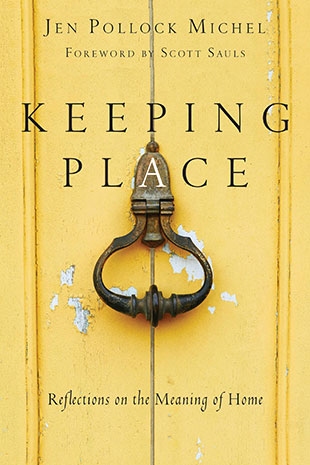"We need to recover the goodness of the housekeeping — and not simply because the findings of a recent survey report that 40 percent of millennials are no longer eating breakfast cereal because they 'had to clean up after eating it.' We might survive weeks with unwashed socks, months with crumbs in our kitchen drawers, but we cannot sustain a lifetime without the care inextricably bound up in the housekeeping. And housekeeping, in the broad sense I am using it is not only meant to describe a narrow list of household chores. Instead, it is, as writes Marilynne Robinson in her essay 'When I Was a Child,' 'a regime of small kindnesses, which taken together, make the world salubrious, savory and warm. I think of [these] acts of comfort . . . as precisely sacramental.' Housekeeping points toward the thin places of daily life: where work, however monotonous and menial, becomes worship, witnessing to God's kingdom coming and his will being done, on earth as it is in heaven. In this sense, the effort to pour cereal and rinse clean one's bowl (even the bowl of one's neighbor) can be a spiritual practice, preparing us for greater exertion, more heroic love.
"In the Hebrew Scriptures, the word 'avodah shares the sense of 'housekeeping' as I mean to use it, and it is translated in a variety of ways: work, service, labor, duties, ceremony, ministry. 'Avodah is the word used to describe Jacob's fourteen years of laboring for Laban's daughter Rachel, as well as Israel's forced labor under repressive Egyptian taskmasters. It is also the word that signifies the priestly work of the tabernacle and temple. 'Avodah reminds us that worship — and its attendant calls to vocation — can share the banality and ordinariness of everyday work.
"Housekeeping, as worship and work, rightly relates us to God as well as to our fellow humans."
